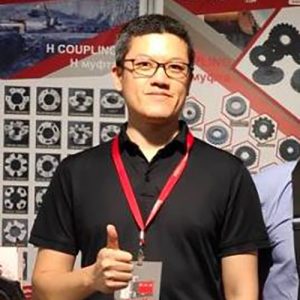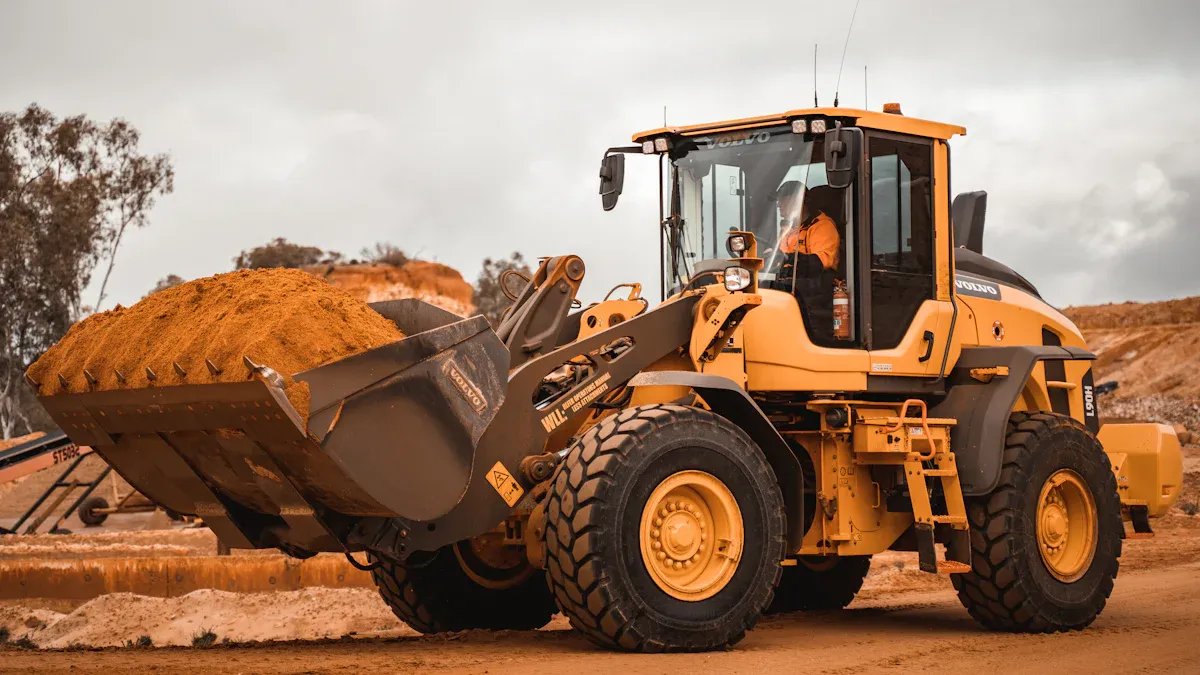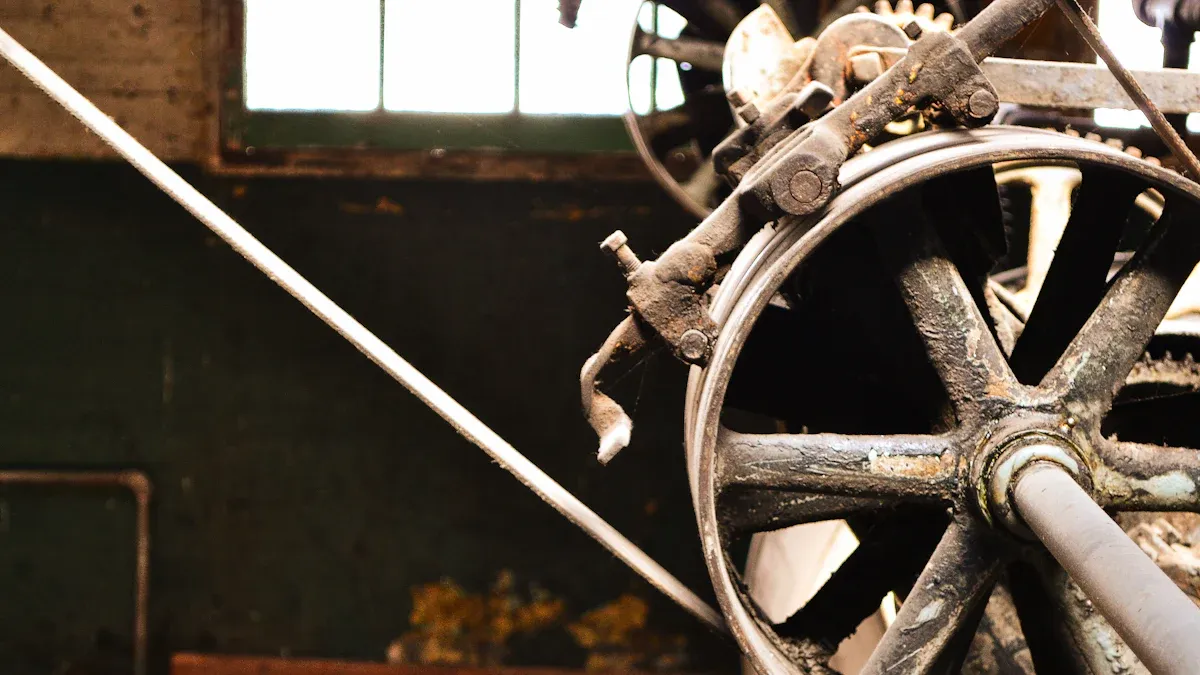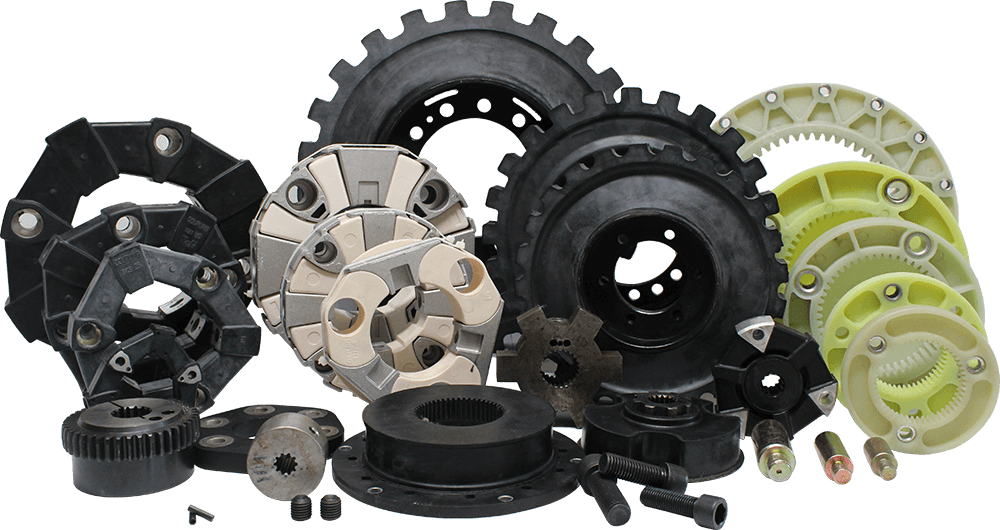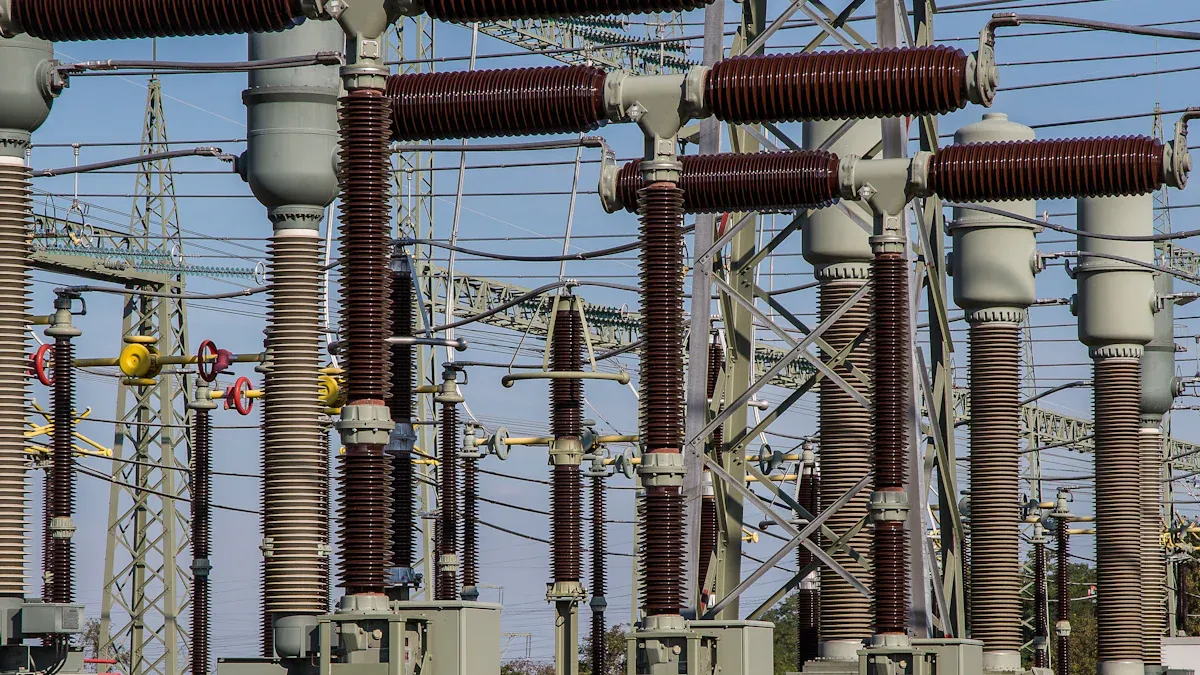
You might hear loud sounds and feel shaking when machines work. Isolation bushings fix these issues. These small pieces go between moving parts. They stop extra movement. They soak up shocks and keep vibration from spreading. This helps machines run quietly and smoothly.
New research shows isolation bushings lower noise and vibration a lot.
One test showed a special design cut low vibration by 94%.
Your car or equipment feels better and works well because of these helpful parts.
Key Takeaways
Isolation bushings help cut down noise and shaking in machines. They make machines work better and sound quieter. Picking the right material for isolation bushings is very important. Materials like rubber and polyurethane are used for different jobs. Taking care of isolation bushings often can make them last longer. It also helps machines work better. Isolation bushings keep machines safe from damage caused by bumps and shaking. This means you spend less money fixing them. Using isolation bushings makes things safer and more comfortable for people. They help stop too much shaking and loud sounds.
Isolation Bushings Overview

Definition
Isolation bushings keep moving parts apart in machines. They help stop vibration from spreading. These bushings soak up shocks and lower noise. This makes machines run smoother and quieter. Isolation bushings are part of vibration isolation systems. You see them in cars, big machines, and electrical devices. They also work as anti-vibration mounts. These mounts keep parts steady and safe.
Isolation bushings come in many shapes and sizes. They are made from different materials. Here are some common types:
Natural rubber is stretchy and stops vibration well. It is cheap but does not last long in heat or oil.
Nitrile rubber (NBR) does not get damaged by oil or grease. It is used in hydraulic systems.
EPDM rubber can handle bad weather. It is good for outdoor machines.
Silicone rubber works in high heat and keeps electricity inside. It is used in hot places.
Polyurethane is strong and lasts a long time. It does not get ruined by oil or chemicals but may let more vibration through.
Main Features
Isolation bushings have special features that help stop vibration and noise. You should look at these features when you pick vibration isolation mounts:
The material you choose changes how well it stops vibration. Each rubber or polyurethane type works differently.
Hardness tells you how much energy the bushing can take. Softer bushings stop more vibration. Harder ones last longer.
The shape of the bushing changes how it works. Some shapes fit better in certain machines.
The way the bushing is put together helps it stay strong. Good bonding makes it last longer.
Some new bushings use sensors to check vibration all the time. New materials like nanocomposites and green choices help bushings work better and last longer. Testing rules like IEEE C57.19.01 and IEC 60137 make sure bushings are safe and work well.
Tip: Always check how much weight and which chemicals the bushing can handle before you choose one. Picking the wrong kind can break your machine and cost a lot to fix.
Misconception | Explanation |
|---|---|
Picking the wrong isolators | Using the wrong vibration isolation mounts can break machines. |
Not installing them right | You need to know how to install bushings the right way. |
Not knowing about materials | Not all rubbers can handle heat or chemicals the same way. |
Forgetting about heat | Vibration makes heat, which can hurt bushings if not controlled. |
Not checking weight limits | Each anti-vibration mount can only hold a certain weight. |
Not checking chemical safety | Some bushings break if they touch the wrong chemicals. |
How Isolation Bushings Work
Vibration Isolation Mechanism
When machines move, they make vibration. This vibration goes through metal parts. It can spread to other places. Isolation bushings sit between moving parts. They stop vibration from moving through. This makes machines quieter and smoother.
Vibration isolation uses special materials and shapes. These help stop unwanted shaking. Here is how these systems work:
Rubber or springs soak up vibration energy.
Vibration isolation mounts change the way vibration travels.
How stiff and soft the mount is decides how much vibration stops.
The size and shape of the mount also matter.
These ideas help keep machines safe and quiet. You find vibration isolation mounts in cars and washing machines. They are also in big tools. They stop problems like loose bolts or broken parts.
Scientists tested special bushings and negative stiffness structures. These worked better than regular mounts. They measured vibration at different speeds. The bushings let much less vibration pass through.
Note: To see how vibration isolation mounts work, look at damping and stiffness. Softer mounts block more vibration. Harder ones last longer.
Shock Absorption
Isolation bushings also help with shock absorption. When a machine hits a bump, it gets a shock. Isolation bushings soak up this shock. They protect the parts around them. You feel less shaking and hear less noise.
Soft materials help absorb shock. Rubber and polyurethane are used a lot. These materials bend and stretch when hit. They take in the shock energy. The energy does not go to other parts. This gives smoother rides and quieter machines.
Here is what happens during shock absorption:
The bushing gets squeezed by a force.
The material inside spreads out the energy.
The mount goes back to its normal shape after the shock.
Anti-vibration mounts also help with shock absorption. They keep parts steady. They stop damage from sudden moves. You see these mounts in engines, pumps, and electronics.
A study showed special bushings can handle strong shocks. They keep vibration low. Machines last longer and work better with the right mounts.
Tip: Always check the type of vibration isolation mount before you use it. Some are better for shock absorption. Others are better for blocking vibration.
Types of Isolation Bushings
There are different kinds of isolation bushings. Each kind uses its own material. Each one works best in certain places. You should know how each type helps with vibration. This helps you pick the right vibration isolation mounts.
Rubber Bushings
Rubber bushings are used the most. You see them in cars and machines. They use rubber that bends and moves. This helps stop unwanted shaking. Rubber bushings stretch and go back to their shape. This makes them good for anti-vibration mounts.
Here is a table that shows where rubber bushings are used:
Characteristic/Function | Application Example |
|---|---|
Cylindrical or sleeve-like components | Automotive suspension systems |
Flexible and resilient connection | Industrial machinery |
Reduces noise and vibrations | Hoods of cars |
Withstands harsh operating conditions | Various mechanical systems |
Rubber bushings make things quieter and smoother. They block noise and shaking. You find them where mounts need to handle heat and rough use.
Polyurethane Bushings
Polyurethane bushings last longer than rubber ones. You use them when you need strong mounts. They do not get ruined by chemicals or wear. Polyurethane stays bendy for a long time. It does not crack like rubber.
Rubber bushings are better for comfort and quiet. Polyurethane bushings help with handling and performance. You see polyurethane in fast cars and machines. It works well when you need mounts to last.
Property | Rubber Bushings | Polyurethane Bushings |
|---|---|---|
Durability | Less durable, wears out faster in high-stress conditions | Highly durable, lasts longer in extreme conditions |
Comfort | Superior vibration and noise dampening | Offers less comfort, but better performance in handling |
When you choose between rubber and polyurethane, think about how much vibration you want to stop and how long you want the mount to last.
Metal Bushings
Metal bushings use steel or other metals. You use them where mounts must hold heavy things. Metal bushings last a long time and work hard. They help with vibration but need oil or grease.
Here is a table with the good and bad things about metal bushings:
Advantages | Disadvantages |
|---|---|
Extended equipment life | Wear over time |
Versatility | Performance limits |
Noise and vibration reduction | Dependence on lubrication |
Ease of replacement | Material trade-offs |
Metal bushings do not block vibration as well as rubber or polyurethane. You use them when you need strength more than comfort.
Specialized Types
Some bushings fix special problems. You find these in cars, machines, and buildings. Each type helps with vibration in its own way.
Type of Bushing | Unique Problems Addressed |
|---|---|
Bonded Bushings | Maximize vibration isolation and structural integrity in automotive and machinery applications. |
Cylindrical Bushing | Efficiently absorb vibrational energy in machinery, electronics, and aerospace components. |
Reducer Bushing | Provide flexible couplers for varying pipe diameters, ensuring leak-proof seals in plumbing and HVAC systems. |
Step Bushings | Accommodate vertical deflection, preventing stress and misalignment in structural frameworks. |
Heavy Duty Bushings | Support extreme loads and high-impact stress in heavy equipment and military machinery. |
When you pick vibration isolation mounts, think about heat, damping, and how long they last. You need to match the bushing to your job. Always check how the mounts work in your system. This helps you stop unwanted shaking and keep machines safe.
Tip: For the best vibration isolation, look at the material, shape, and how much vibration your system makes. Good damping keeps your equipment quiet and safe.
Applications

Isolation bushings are used in many places. You see them in cars, factories, and homes. They help control vibration and lower noise. They also protect machines from damage. Let’s see how vibration isolation mounts work in different areas.
Automotive
Vibration isolation mounts are in almost every car. They make rides smoother and quieter. Hydraulic bushings help suspension systems adjust to the road. This gives you more comfort and stability. Strong bushings like polyurethane make cars handle better. They last longer too. You also find upgraded bushings in antisway bars and shock mounts. Coil spring isolators use them as well. Each part helps stop unwanted shaking and improves control.
Hydraulic bushings help suspension systems give more comfort.
Polyurethane bushings make cars stronger and easier to drive.
Upgraded mounts in key spots lower noise and boost control.
Industrial Machinery
Factories use vibration isolation mounts to keep machines safe. The right system can cut machine wear by half. This means machines last longer and break less often. In aircraft engine tests, isolated cells lower noise by about 30%. This helps meet noise rules and get better results. Heavy machines sit on isolation pads. These pads lower vibration to nearby buildings by 40%. Workplaces stay safer and quieter.
Vibration isolation mounts help machines last longer and cost less to fix.
Isolated test cells lower noise and help with testing.
Pads under heavy machines protect buildings from vibration.
Electrical Equipment
Vibration isolation mounts protect electrical gear from shaking. Elastomer mounts and helical isolators soak up vibration energy. This keeps shocks away from important parts. Elastomer mounts cost less but may not stop big shocks. Helical isolators use wire rope for strong protection. They lower the system’s natural frequency. This gives better shock and vibration safety.
Elastomer mounts soak up vibration and protect electronics.
Helical isolators use wire rope for strong vibration isolation.
These mounts keep equipment safe from unwanted shaking.
Consumer Products
Many things you use every day need vibration isolation mounts. Cars, planes, and machines use them for smoother work and longer life. The table below shows some products and how isolation bushings help:
Consumer Product | Benefits |
|---|---|
Cars | Smoother rides, shock absorption, and less vibration in key parts. |
Industrial Equipment | Lower repair costs, longer life, and less downtime. |
Airplanes | Better safety and less noise, which means more efficiency. |
General Machinery | Protects sensitive parts like circuit boards from vibration damage. |
Tip: Always pick the right vibration isolation mount for your needs. The right mount lowers noise, gives more comfort, and helps equipment last longer.
Benefits
Performance Improvement
When you use vibration isolation mounts, your machines work better. These mounts help in many ways. They cut down on shaking, so your equipment works well. They make things quieter, so your workspace is more peaceful. They also take in energy from moving parts. This keeps your machines from wearing out too soon. Vibration isolation mounts help your equipment run smoothly. You do not have to fix things as often. You can get more work done. Anti-vibration mounts also stop parts from getting loose. You see less shaking and fewer problems. This means your machines work better every day.
Longevity
You want your machines to last a long time. Vibration isolation mounts help you do that. They keep your equipment safe from damage. This helps your machines run longer. To make your mounts last, you should do a few things. Check them often to find problems early. Clean the mounts to keep dirt away. Test the mounts to find hidden issues. Problems like insulation breaking, water getting in, or too much heat can make mounts wear out faster. You can stop these problems by putting the mounts in right and taking care of them. Hot weather or wet air can also change how long mounts last. For example, silicone can take more heat than neoprene. Some materials soak up water, which can make them work less well.
Here is a table that shows what affects isolation bushings:
Factor | Impact on Isolation Bushings |
|---|---|
Temperature | Influences degradation of insulation materials. |
Humidity | Can lead to moisture absorption, affecting effectiveness. |
Material Resistance | Silicone withstands up to 300°F; neoprene may degrade at high temperatures. |
Moisture Absorption | Some materials absorb moisture, impacting performance. |
Safety and Comfort
Vibration isolation mounts do more than protect machines. They also keep you safe and comfortable. These mounts lower shaking because rubber soaks up energy. They make things quieter, so your space is nicer. They protect your equipment, so it lasts longer and works better. Workers feel better and safer because there is less shaking. This means less stress and fewer health problems. When you look at other ways to stop vibration, you see these mounts are a good deal. Here is a table that compares different solutions:
Vibration Isolation Solution | Cost Considerations | Effectiveness |
|---|---|---|
Active Vibration Isolation Systems | High costs due to components like magnetic actuators and power amplifiers. | Effective but requires matching forces generated by stage motions. |
Passive Vibration Isolation Systems | Generally lower costs compared to active systems. | Extremely effective at suppressing ground noise at frequencies above a few Hz, with some exceptions. |
You also help the planet when you pick mounts made from green materials. Companies now use more earth-friendly choices. This helps you follow new rules and care for nature.
Tip: Pick the right vibration isolation mounts for your job. You get better results, longer life, and a safer, quieter place to work.
Isolation bushings help stop vibration and keep machines safe. They make machines run smoother and last longer. You also feel more comfortable when using them. Here are some main benefits:
Benefit | Description |
|---|---|
Enhanced Efficiency | Machines run smoother and use less energy. |
Improved Comfort | Less shaking for people using the machines. |
Protection Against Damage | Parts stay safe and you fix things less. |
Minimizing Wear and Tear | Important parts last longer and work better. |
Reducing Maintenance Costs | You do not need to repair as often. |
Enhancing Reliability | Machines break less and work when you need them. |
When picking isolation bushings, look at where your machine is. Think about which way it shakes and what the area is like. Check how much weight the bushings must hold and how long they should last. The right bushings help your machines work well and keep your space nice.
FAQ
What is the main job of an isolation bushing?
Isolation bushings keep vibration and noise from spreading. They help machines work quietly and smoothly. These bushings also protect parts from damage caused by shaking.
How do you know which isolation bushing to choose?
Look at the material, size, and weight limit of the bushing. Think about what kind of vibration your machine has. If you are not sure, YNF Rubber can help you pick the right one.
Can isolation bushings wear out?
Isolation bushings can get worn out after a while. Check them often for cracks or changes in shape. Replace old bushings to keep your machines safe and working well.
Where do you find isolation bushings in daily life?
You find isolation bushings in cars, washing machines, and air conditioners. These bushings help make rides smoother and keep machines quiet. They also protect parts from shaking.
Do isolation bushings need special care?
Clean bushings and check them for damage. Keep them away from chemicals and very hot places. Taking care of bushings helps them last longer and keeps your equipment working well.

